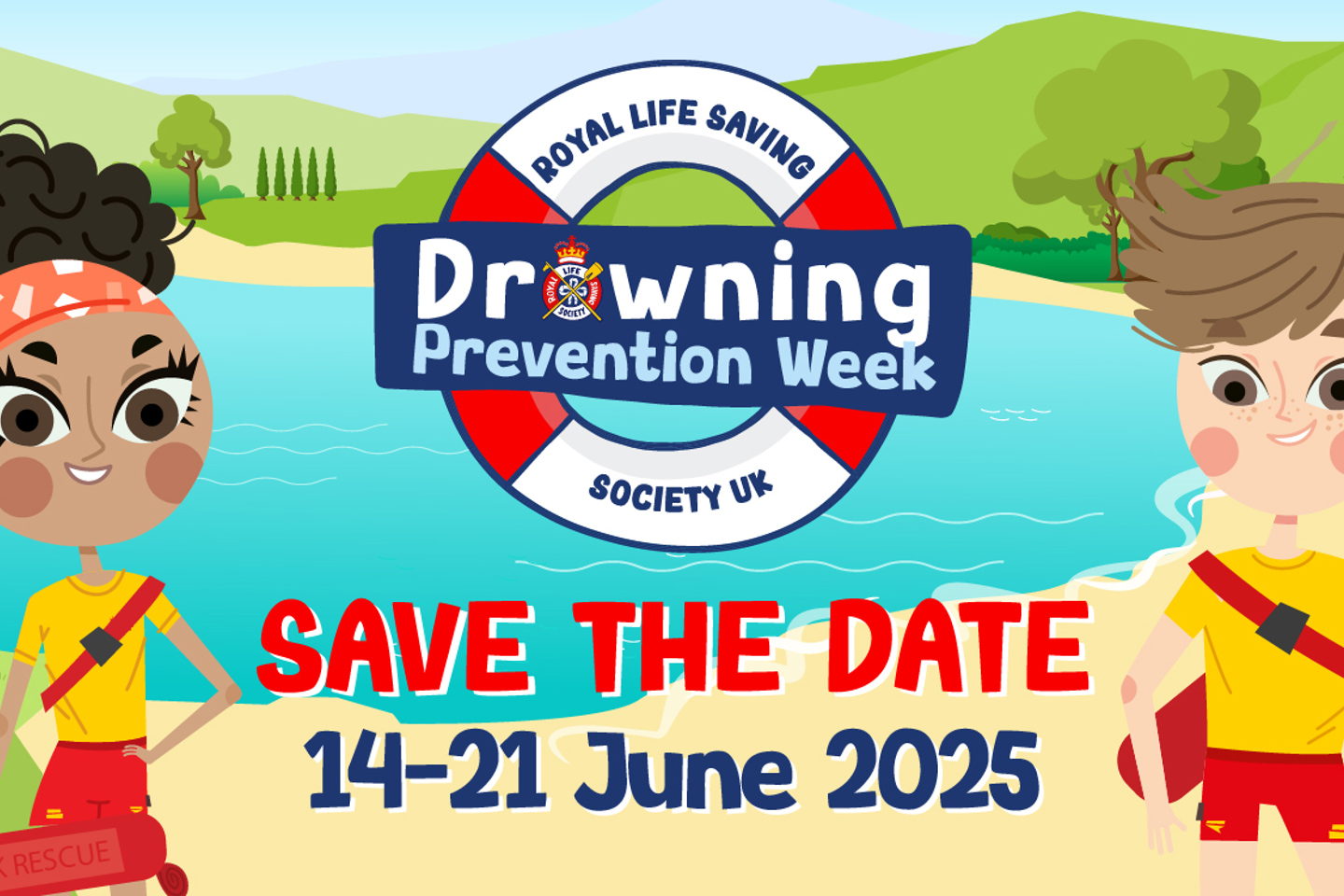We're proudly supporting Drowning Prevention Week (DPW) which runs from 14th to 21st June 2025.
Led by the Royal Life Saving Society UK (RLSS UK), the week aims to raise awareness about the importance of water safety and reduce the number of accidental drownings.
With summer just around the corner and families planning more time near the water—be it beaches, pools, lakes or rivers—now is the perfect time to brush up on essential water safety knowledge.
Do you know the Water Safety Code?
Stop and Think: Assess your surroundings. Identify potential dangers and follow local safety signs and advice.
Stay Together: Always go with friends or family when near water. Swim only at lifeguarded locations.
In an Emergency:
- Call 999: If you're at the coast, request the Coastguard. Never enter the water to perform a rescue.
- Float: If you fall in or become tired, stay calm, float on your back, and call for help. If someone else is in trouble, throw something that floats to them and call 999.
The Royal Life Saving Society UK has created resources for Parents to help them take charge of their family’s water safety education.
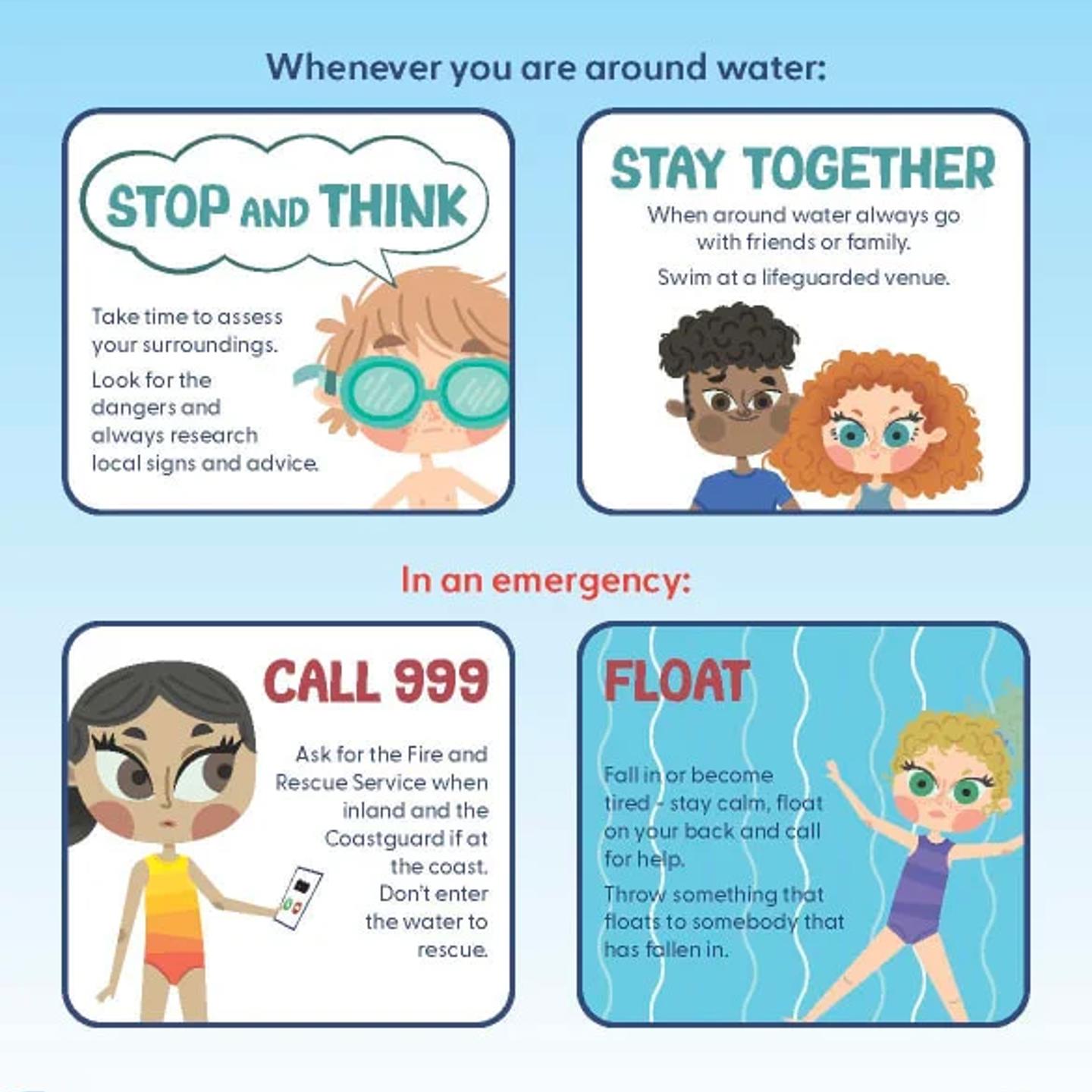
Beach flags and their meaning:
Beach flags are displayed by beach lifeguards in patrolled areas to provide guidance on the water and the wind conditions. They also inform beach users where the swimming and water sports zones are located.
Understanding beach flags can prevent serious accidents. If you're heading to the beach this summer, look for these:
- Red and yellow flags: Safe to swim; lifeguards are on duty.
- Black and white chequered flags: Water sports zone; no swimming.
- Red flag – Danger: Do not enter the water.
- Orange windsock: Offshore wind; inflatables are not safe.
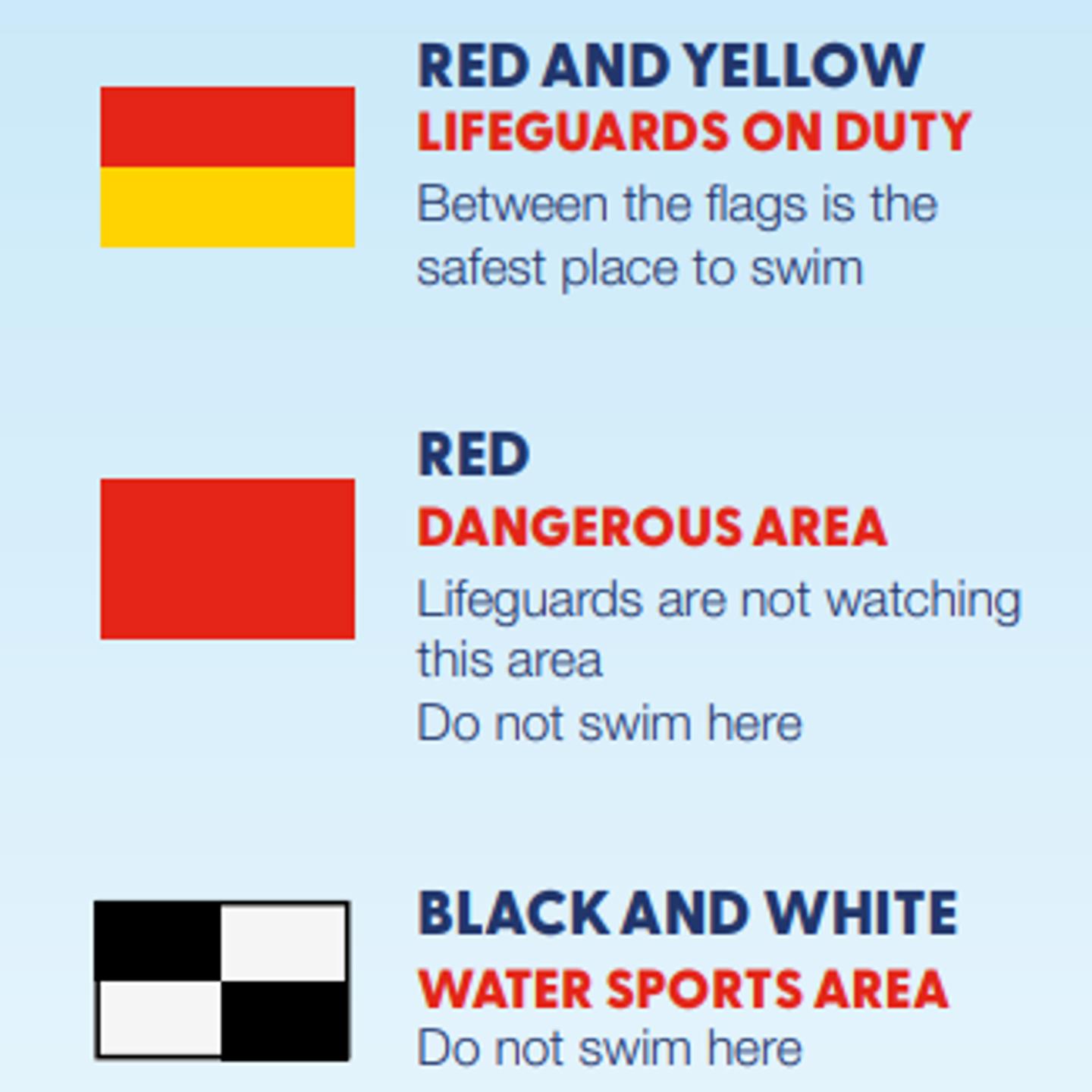
Staying safe in the pool:
It is important to read and stick to the pool safety rules.
It's crucial to check where the lifeguard will be positioned while you swim and to pass on any medical information that they may need to know about you before you enter the water.
Make sure you familiarise yourself with the location of pool safety equipment. If you get into difficulty, try to remain calm, float on your back, and shout for help. Signal for help by raising an arm with a clenched fist to let the lifeguard know you need assistance.
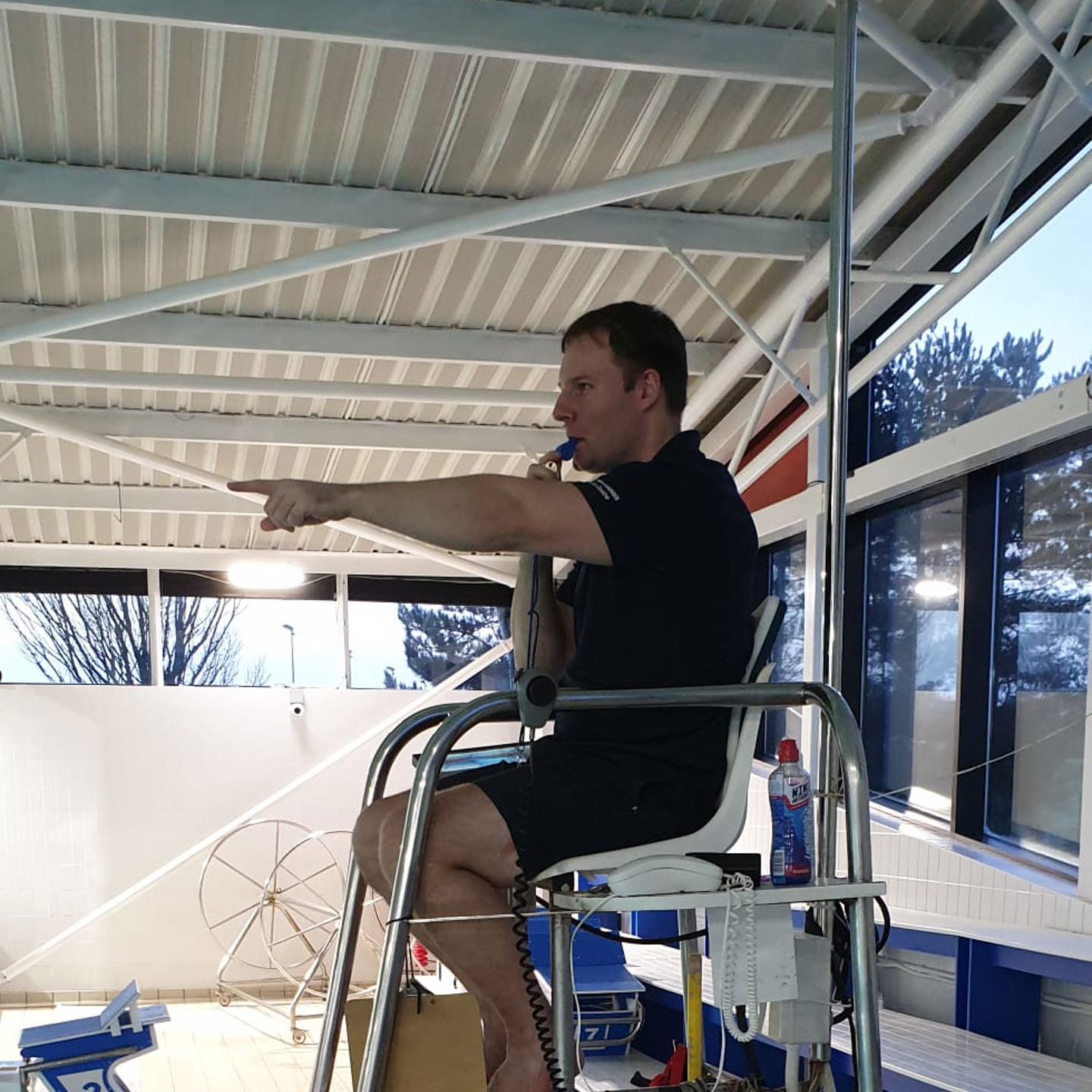
Water safety at the Splashpad at Coronation Park:
Aly, Aquatics Program Co-Ordinator says: “Please keep a close eye on your children. Don’t forget armbands. Remember, it is possible to drown in shallow water. Wear something cool and comfortable, and don’t forget sunscreen and a hat.”
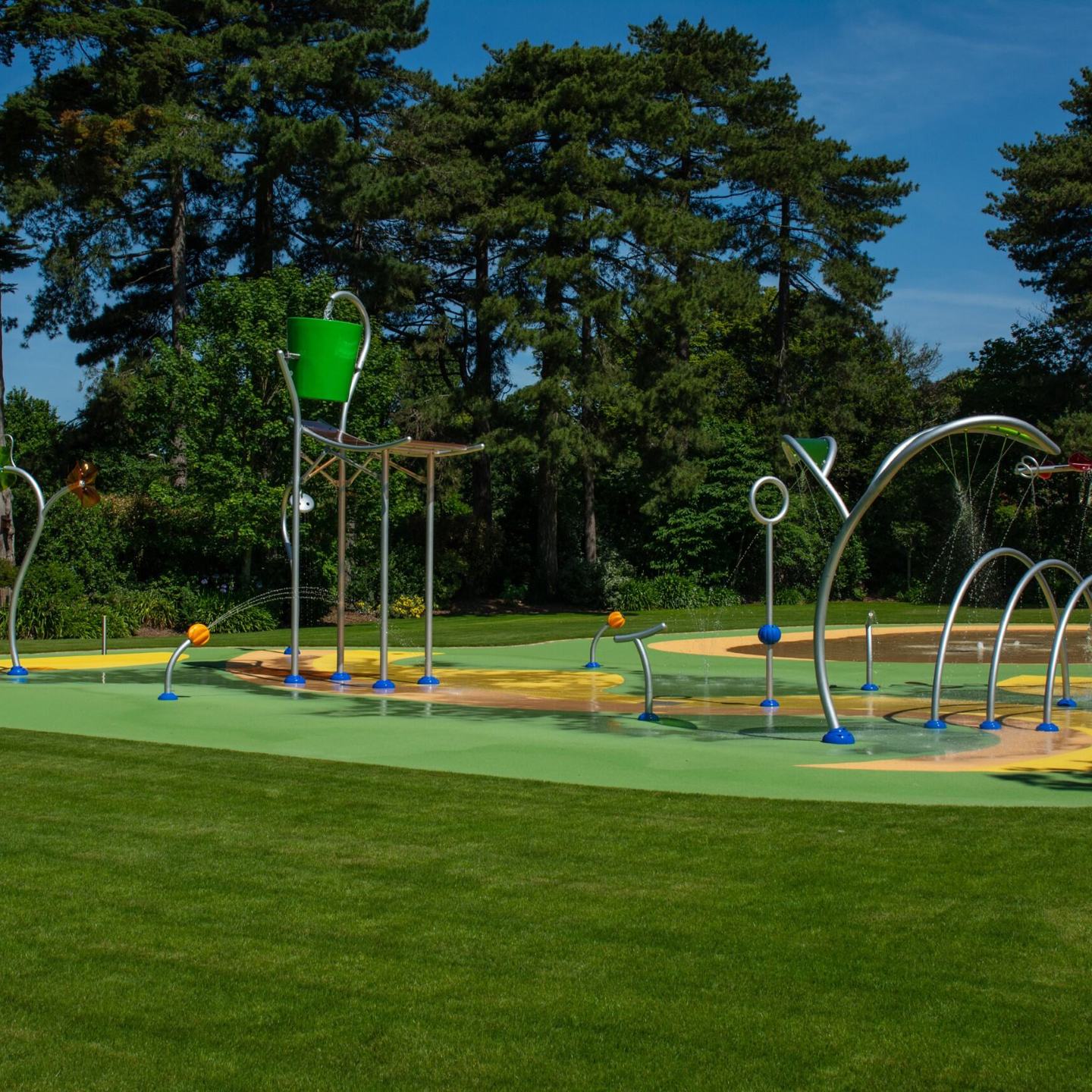
We asked our wonderful Les Quennevais Wet Side team for their top tips for Drowning Prevention week:
Adrian, Duty Manager: “Follow the rules of the pool to have the best experience within a safe environment.”
Joe, Swim Instructor: “It’s important to listen to the lifeguard’s instruction, their job is to keep you safe.”
Aly, Aquatics Program Co-Ordinator: “If you are swimming in the sea, always check the tides before getting in the water. Check the weather, take a floatation buoy that is orange or pink and bright coloured swim cap so you can be seen. Always swim with a buddy and tell someone when you are going in and when you have left the water.”
Martin, Chief Lifeguard at Havre des Pas: "Make sure you know Float to live; Lean back, using your arms and legs to stay afloat, control your breathing. Call for help or swim to safety. In a coastal emergency call 999 or 112."
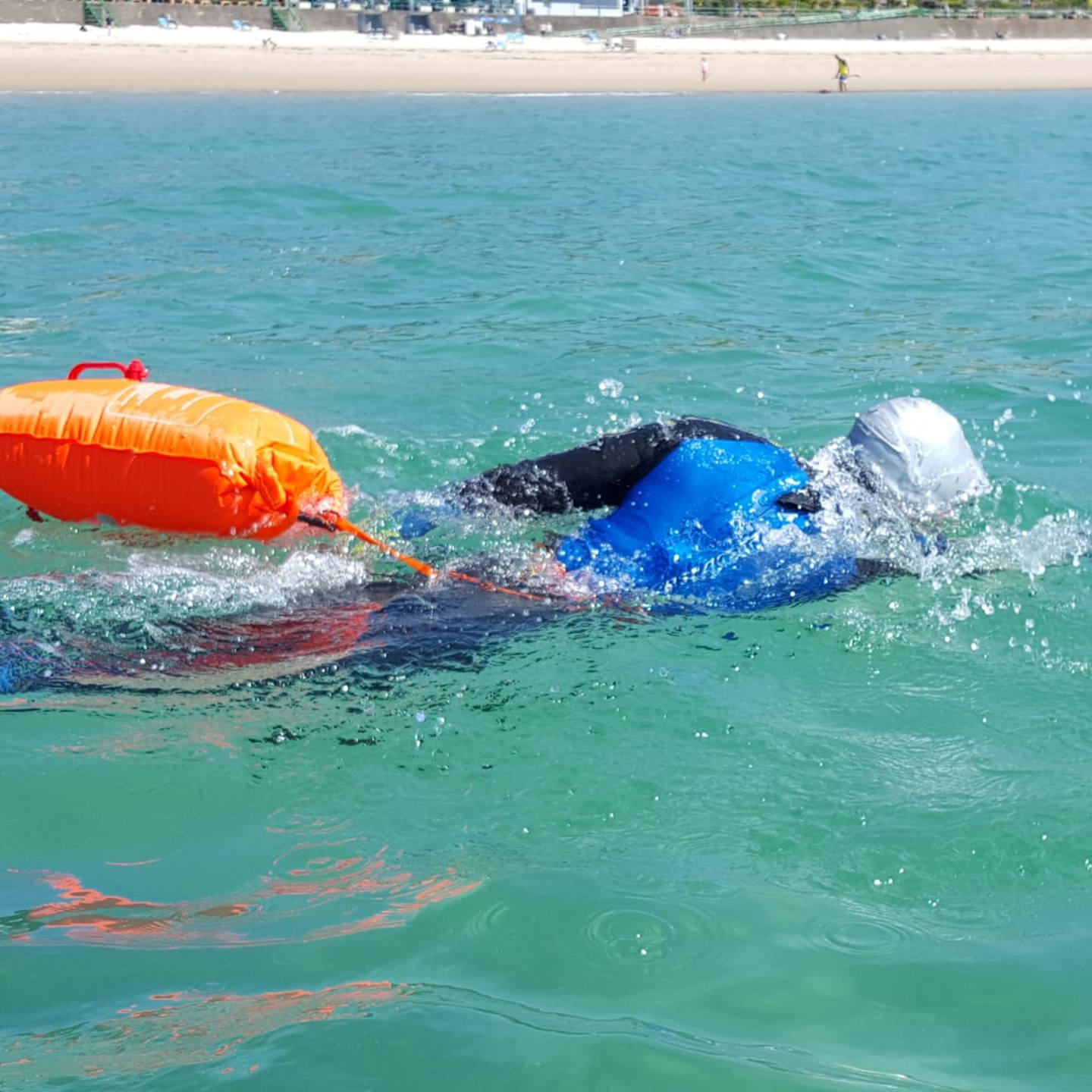
Colour In To Win!
The RLSS are offering the little ones in your life a chance to WIN a limited-edition 'Drowning Prevention Superstar' pin badge!
How to enter:
Step 1: Download and print one of our colouring and activity sheets (You can find them in this blog, they will also be available on Les Quennevais Reception)
Step 2: Get creative, whilst learning about water safety!
Step 3: Send a picture of your masterpiece (ideally including the artist!) to marketing@rlss.org.uk
The first 100 entries they receive will be contacted and sent the Drowning Prevention Superstar pin badge of their choice (two designs available) to wear with pride!*
Find out more and see the terms and conditions: https://www.rlss.org.uk/colouring-competition
*Subject to availability. Terms and conditions apply.
Choose your colouring sheet:
- Enjoy Water Safely
- Water Safety in the home
- Water Safety in the pool
- Water Safety at the Beach
- Water Safety at the River
Become a lifeguard – help keep others safe!
Our professional team are qualified to deliver the National Pool Lifeguard Qualification training and run courses regularly. Our next course takes place in August.
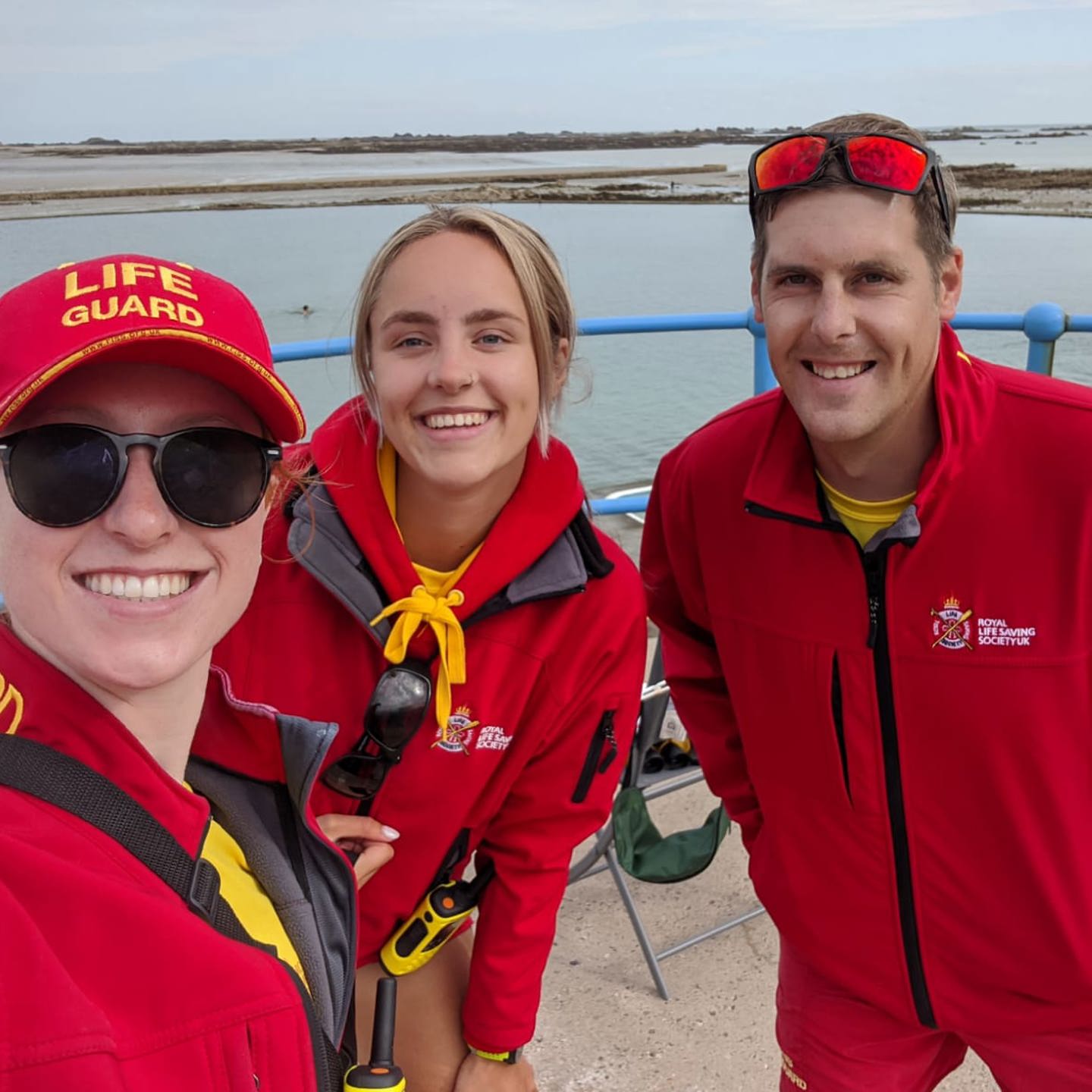
We can all help to prevent drowning! Whether it be to learn how to keep ourselves and others safe in, around, or on water, volunteering for organisations that improve water safety, or learning the water safety code.

